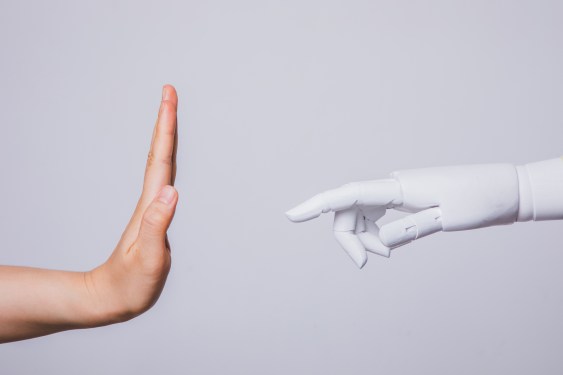As we enter the year 2024, artificial intelligence (AI) has once again taken center stage in the world of technology. The hype surrounding AI is palpable, with some techno-zealot billionaires and influencers singing its praises while others sound alarms about its potential dangers.
The Exaggerated Positions
It’s essential to recognize that both sides of the debate are exaggerating their claims. On one hand, proponents of AI tout its ability to solve complex problems and revolutionize industries. On the other hand, detractors paint a picture of an apocalyptic future where humans are replaced by machines.
However, these positions are not mutually exclusive, and it’s time to take a step back and assess the situation objectively. The history of technology development has shown us that we often rush into new innovations without stopping to consider their implications.
Lessons from Social Media
The rise of social media is a prime example of this phenomenon. We eagerly adopted platforms like Facebook, which quickly became an integral part of our lives. However, in our enthusiasm for the latest technology, we neglected to ask whether these tools were truly beneficial or desirable.
As AI begins to infiltrate various aspects of our lives, it’s essential to remember that just because something is easier or more convenient doesn’t mean it’s preferable or even desirable. We must avoid falling into the trap of mindless adoption and instead critically evaluate the impact of AI on society.
The Dark Side of Efficiency Gains
One of the most significant concerns surrounding AI is its potential to automate menial tasks, freeing up human time for more "quality" work. However, this narrative is often oversimplified and ignores the complexities of human experience.
While it’s true that automating certain tasks can lead to increased efficiency and productivity, we must not forget about the individuals who perform these jobs. Many people find meaning and purpose in their daily work, regardless of whether it’s "life or death" critical.
The Human Factor
As AI continues to advance, it’s crucial to recognize that human beings are inherently messy, inefficient, and error-prone. We often rely on technology to compensate for our shortcomings, but this approach neglects the value of human experience and creativity.
In many cases, the benefits of AI are presented as efficiency gains, which might be beneficial in the short term but ultimately ignore the complexities of human existence. By prioritizing productivity over people, we risk creating a society where individuals feel disconnected from their work and their communities.
A More Nuanced Approach
While it’s essential to acknowledge the potential benefits of AI, we must also take a more nuanced approach to its development and deployment. We need to assess whether the tasks being automated are truly unnecessary or if they serve an essential purpose in our lives.
Moreover, we should focus on creating technologies that augment human capabilities rather than replacing them. By doing so, we can harness the power of AI while preserving the value of human experience and creativity.
Conclusion
As AI continues to shape our world, it’s time for a reality check. We must recognize the exaggerations on both sides of the debate and take a more balanced approach to its development. By prioritizing people over productivity, we can create a future where technology serves humanity, not the other way around.
Related News



